Choosing the right classification and type of business structure is a crucial decision for any entrepreneur. The structure you choose will impact your tax obligations, liability, and legal requirements. This post will guide you through the process of selecting the best business structure for your needs.
Understanding Business Structure Classifications
Choosing the right business classification is one of the first and most important decisions you’ll make as an entrepreneur. This decision impacts everything from your day-to-day operations to your long-term financial health. Your business structure affects:
- Liability: Determines the extent to which your personal assets are protected from business debts and lawsuits.
- Taxation: Dictates how your business income is taxed (e.g., pass-through taxation or corporate taxation).
- Administrative Burden: Influences the amount of paperwork, compliance requirements, and ongoing costs associated with running your business.
- Funding Options: Affects your ability to raise capital from investors or secure loans.
Let’s explore the most common business structures:
Sole Proprietorship
Definition: A sole proprietorship is the simplest business structure, owned and operated by a single individual. There’s no legal distinction between the owner and the business.
- Pros:
- Easy and inexpensive to set up.
- Minimal paperwork and regulatory requirements.
- The owner has complete control over all business decisions.
- Profits are taxed as personal income (pass-through taxation).
- Cons:
- Unlimited personal liability: The owner is personally responsible for all business debts and obligations.
- Limited access to capital: Raising funds can be challenging, as lenders may be hesitant to provide loans without personal guarantees.
- Business dies with the owner.
Partnership
Definition: A partnership is a business owned and operated by two or more individuals who agree to share in the profits or losses of the business.
- Pros:
- Shared responsibility and workload.
- Increased access to capital compared to a sole proprietorship.
- Potential for diverse skills and expertise among partners.
- Profits are taxed as personal income (pass-through taxation).
- Cons:
- Unlimited personal liability for general partners (in a general partnership). Limited partnerships offer some liability protection for limited partners.
- Potential for disagreements and conflicts between partners.
- More complex legal structure than a sole proprietorship, requiring a partnership agreement.
Corporation
Definition: A corporation is a separate legal entity, distinct from its owners (shareholders). It can enter into contracts, own property, and be sued in its own name.
- Pros:
- Limited personal liability: Shareholders are generally not personally liable for the corporation’s debts.
- Easier access to capital through the sale of stock.
- Perpetual existence: The corporation continues to exist even if ownership changes.
- Cons:
- More complex and expensive to set up and maintain.
- Higher compliance requirements, including annual reports and meetings.
- Potential for double taxation: Corporate profits are taxed at the corporate level, and then again when distributed to shareholders as dividends.
Limited Liability Company (LLC)
Definition: An LLC combines the limited liability of a corporation with the pass-through taxation of a sole proprietorship or partnership.
- Pros:
- Limited personal liability: Members are generally not personally liable for the LLC’s debts.
- Flexible ownership and management structures.
- Pass-through taxation: Profits are taxed as personal income.
- Cons:
- May require annual fees and more complex paperwork than a sole proprietorship.
- Regulations governing LLCs can vary by state.
Choosing the Right Classification for Your Business
Selecting the appropriate business classification is crucial for long-term success. Carefully consider the following factors:
- Liability Protection: How much personal risk are you willing to take? If protecting your personal assets is a top priority, a corporation or LLC is generally preferable.
- Tax Implications: Understand the tax consequences of each structure. Consider whether pass-through taxation or corporate taxation is more advantageous for your specific situation.
- Funding Needs: If you anticipate needing to raise significant capital from investors, a corporation may be the best choice.
- Administrative Burden: Evaluate the level of paperwork and compliance you’re willing to handle. Sole proprietorships and partnerships are generally simpler to manage than corporations.
- Future Growth Plans: Consider your long-term goals for the business. A structure that works well now may not be suitable as your business grows.
Choosing the right business structure is a critical decision that should not be taken lightly. Each structure has its advantages and disadvantages, and the best choice depends on your individual circumstances and business goals.
Schedule an appointment with a Pryor Financial advisor to discuss your business structure options and receive personalized guidance. We can help you navigate the complexities of business classifications and make the best decision for your future success.

